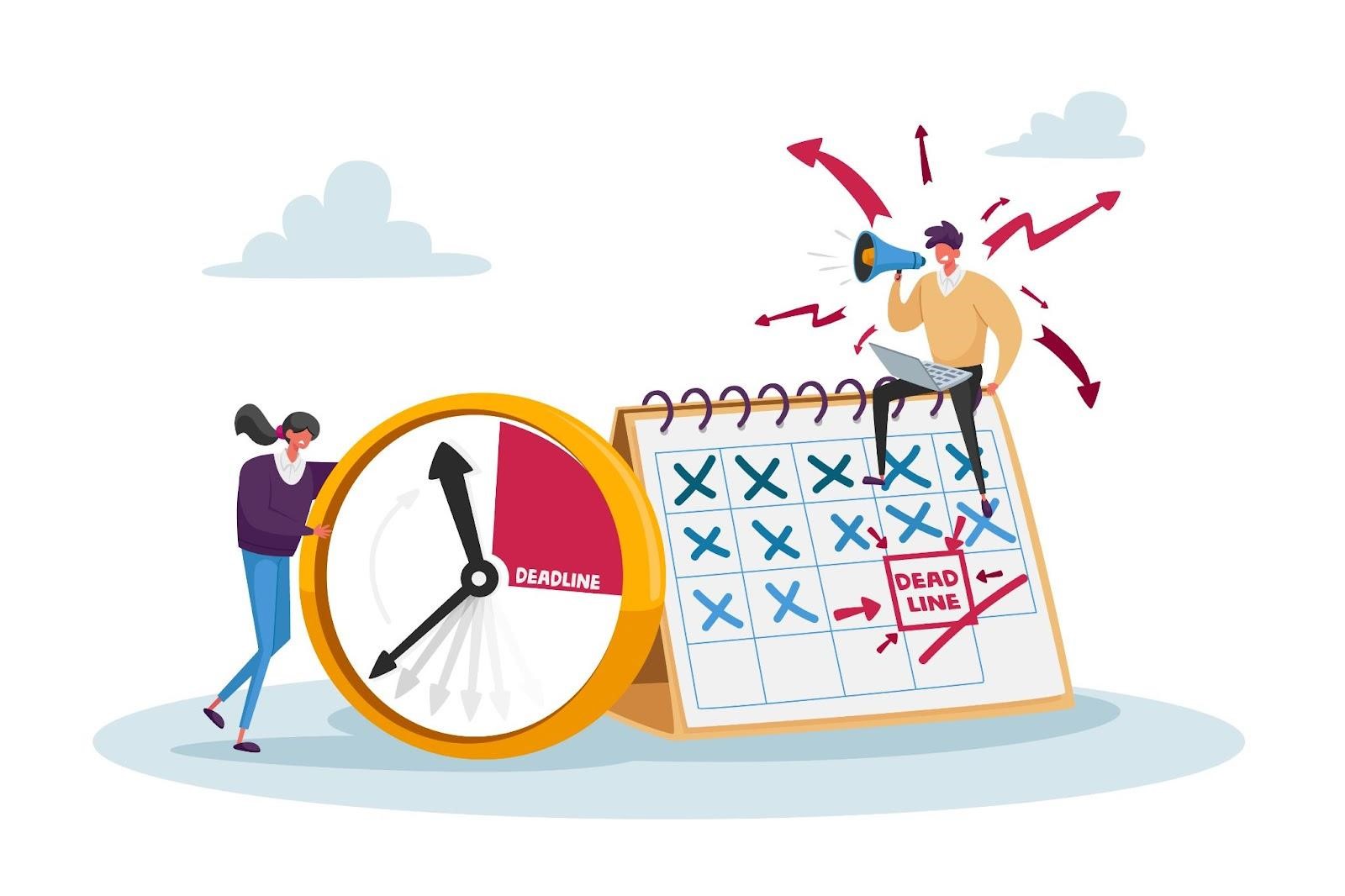Learn The Tips, Tools, & Techniques For Effective Time Management
2024-08-21
Did you know that, according to Zapier, 35% of employees find time management hinders their productivity? Time management helps us plan and control how we spend our time, achieving specific tasks.
Proper time management enhances efficiency, decreases stress and has a wide-ranging positive impact on one's welfare. There are many time management techniques that you can apply, and some of the most effective strategies include goal setting, time prioritising, and non-procrastination.
Proper time management begins with setting goals. If you aim at something, it becomes easy to have direction and, more so, to be determined to accomplish the set goal. Delaying or staying passive is one of the biggest hurdles hindering efficient time management. When one realises they tend to procrastinate on essential tasks, they must find ways to deal with it.

Understanding Time Management Techniques
-
Goal Setting:
Time management stems from processes that have well-outlined goals and objectives. Setting goals is fulfilling because it provides direction, increases productivity, and makes you work harder to achieve what you planned. You should always set your goals using the acronym SMART to ensure they are specific, measurable, attainable, relevant, and time-bound.
After setting goals, the next step is dividing them into sub-goals that are easier to achieve. This makes them less challenging and thus achievable. When you have goals, you subdivide them into tasks, meaning that you develop a strategy for your time management strategies.
-
Prioritisation:
Organising tasks is another important aspect of time management in any task assignment. Not all activities are equally significant, meaning many are of a higher priority than others. The Eisenhower Matrix is a common technique for strategies, sorting, and organising tasks into four quadrants. Shifting your stress from aimless worrying to effective time management means your work will be valuable and meet the objectives.
Second, the ABCDE priority method, which involves writing a letter for every task to show its degree of importance, is also available. This method allows individuals to work on the most important tasks and exclude time-wasting activities.
-
Task Management:
Dealing with tasks involves sorting and handling work in a manner that enables one to control work functions. Checklists and to-do list applications are also helpful in tracking tasks. These tools let you list your tasks, specify the duration of each task, and do many other things. Further, one might need to apply the Pomodoro Technique, which implies working continuously for 25 minutes and then having a five-minute break.
Another approach for organising tasks similar to Kanban is a work-in-progress approach, where work is visualised to track ongoing work progress. Thus, one can remain lasting and efficient by knowing these techniques of managing tasks under the chronological and importance-priority plan.

Essential Time Management Tools and Resources
-
Digital Calendars and Planners
Keeping digital calendars and planners is helpful for efficient time management. These tools enable you to make appointments, bookmark reminders, and create timelines for different events.
Google Calendar, Outlook Calendar, and Apple Calendar are some of the terrific choices that users can make. When selecting features for a digital calendar or planner, one should consider factors like compatibility with other software, flexibility, and usability. A digital calendar or planner can ensure that one does not forget some of the necessary appointments or deadlines.
-
Task Management Apps
Another helpful resource is task management apps. These include apps that allow users to make lists of tasks, set priorities, and monitor their activities. Some of the most well-known are Trello, Asana, and Todoist.
When selecting a task management app, it is crucial to consider its interoperability, ability to be configured to meet unique needs, and compatibility with other applications. With the help of the task management app, one can maintain a list of tasks to be done and a list of the objectives to be achieved.
-
Productivity Tools
Numerous other tools can help you manage time better besides digital calendars and planners. Tools like Toggl and RescueTime filter out time-wasters and make intelligent decisions about how best to spend your time.
For example, tools like Evernote and OneNote help you take notes and collect ideas in one place. Browser extensions and noise-cancelling headphones are other practical tools that can reduce distractions. If used properly, such tools help you develop time management and work efficiency to accomplish your goals.
Tips for Effective Time Management
-
Take Breaks and Avoid Burnout
One should take regular breaks from work to avoid overstressing, which can affect a worker's productivity. Stretch a little, get out of your chair, walk around, or close your eyes for a few minutes and rest. An occasional break gives you total concentration on all activities.
-
Continuously Evaluate and Adjust Your Time Management Strategies
Proposed methodologies or plans for time management are temporal and should be periodically reviewed or modified. Evaluate your performance, assess strengths and weaknesses and adjust your strategies where and when necessary.
-
Delegate Tasks When Possible
It may also be important not to hesitate to assign specific duties to others where there seem to be merits. This can help reduce your time on these tasks and allow you to devote more time to other critical activities. Delegating work also means learning leadership skills and creating stronger co-worker relationships.
-
Learn to Say No to Unnecessary Commitments
One should avoid getting involved in many activities and commitments that limit one's time for other necessary activities. Refusing to take on extra tasks that do not need to be done could be beneficial as this also does not cause stress. Remember what is essential in life, and don’t make commitments to which you cannot commit yourself wholeheartedly when asked politely not to say yes.
-
Set Realistic Deadlines and Avoid Perfectionism
Establishing goals and objectives that are likely to be hard to achieve within the time frame will only result in less stress and less production. Provide goals or schedules that can be met yet establish pressure for achievement. Please do not attempt to be perfect, as it leads to procrastination and lowers productivity. Ensure you deliver to the best of your ability, but do not aim to make things perfect.
Conclusion
Effective time management is essential for success. You can be more productive and reduce stress by setting goals, prioritising tasks, and avoiding distractions. Use time management tools and techniques to improve your efficiency. Continuously evaluate and adjust your strategies to find what works best for you. Remember, effective time management is a skill that can be learned and improved with practice.


 Español
Español Русский
Русский Deutsch
Deutsch Suomi
Suomi Français
Français Italiano
Italiano 日本語
日本語 Nederlands
Nederlands Português
Português Türkçe
Türkçe 中文
中文 عربي
عربي Tagalog
Tagalog اردو
اردو Gaeilge
Gaeilge বাংলা
বাংলা Magyar
Magyar Polski
Polski Čeština
Čeština Български
Български Bahasa Indonesia
Bahasa Indonesia 한국어
한국어 Română
Română Svenska
Svenska